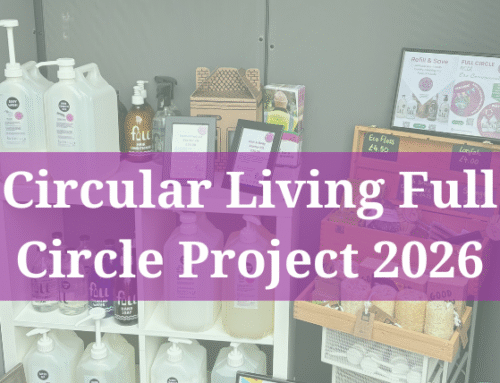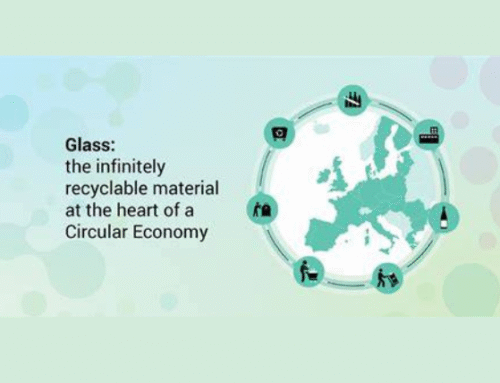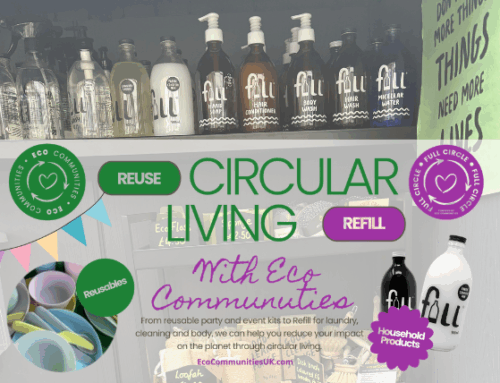
Biodegradable and compostable are turning out to not be the saviour everyone thought they might. I have been plastic free campaigning for the last two years and have read a fair bit on the subject so thought I’d share with you what I’ve learned.
I have attended meetings with local authorities like WRAP (Waste & Resources Action Group) and other Non Government Organisations to ask questions.
At the moment biodegradable and compostable products aren’t fully regulated and companies are making claims that just aren’t true (where have I heard of that before?).
In the rush to move away from single use products, businesses are making switches to some alternatives where we just don’t have the waste collection streams in place right now to deal with them.
Some companies are switching in all good faith from the claims of the suppliers. However, some bigger businesses must know they present a problem when they make the eco-claims they do.
Both biodegradable and compostable’s need certain conditions to break down, some of the plant based alternatives divert huge swathes of land away from food production to grow crops for their products.
So for landfill or incineration it’s not really worth paying the extra for a product that will likely end up in the same place anyway.
“There are certain conditions, like temperature and moisture, which affect how well a plastic breaks down. This means a biodegradable plastic will not simply break down wherever it ends up. If it is not disposed of correctly or ends up as litter, it might not break down at all.
In Australia, the term biodegradable usually refers to plastics that are ‘compostable’, meaning they will break down when placed in a home compost bin or commercial composting facility.When disposed of correctly, a compostable plastic will almost completely biodegrade within six months – a big improvement on the 100-plus years it would take for something like a normal plastic bag to break down in a landfill.”
CHOICE
What does biodegradable mean?
Something is considered biodegradable if it can be broken down by living things, usually by microorganisms like bacteria and fungi.
- Biodegradable will biodegrade, but generally not as quickly as compostable plastic. Look for products that state they are 100% biodegradable and show the disposal method.
- Compostable will biodegrade in a commercial compost facility.
- Home compostable is the best option if you have a home compost bin.
But watch out for these:
- Bio-or plant-based means the plastic is made from plant materials rather than fossil fuels, but this doesn’t necessarily mean it is biodegradable or compostable.
- Bioplastic is a confusing industry term that has two meanings – it could mean the plastic is biodegradable/compostable or that it is made from plant materials. Ignore this term, as it’s not reliable.
- Degradable is neither biodegradable nor compostable.
Another term that gets banded around a lot is ‘flushable’ – e.g. Flushable Wipes – these are a HUGE no-no, wipes should never be flushed down the toilet.
Compostable – in the UK almost no local authorities can deal with anything needing industrial composting.
“The public really need to know that when something says it’s compostable, it is not going to disappear as soon as you drop it and it may not actually be good for the environment.
Even on a home compost heap, these products may not biodegrade for years because the conditions are not right.
Most people put them in the bin, where they do not look any different to regular plastic so are not separated out and end up burned or in landfill. Or they put them in with the food waste, which is actually worse because it is not dealt with in the same way and can contaminate the process. At the moment most biodegradable or compostable products end up in landfill, where they will not biodegrade, which raises the question of what the point is.”
Professor Mark Miodownik, UCL,
Don’t pay more for these products if they will end up in landfill or incinerated. Check your local authority and if it can collect these products.
This isn’t being negative – I’m sad the UK hasn’t found better solutions and so I’m campaigning to change things as part of Friends of the Earth and Plastic Free Pioneers.
Some products do have some eco-credentials even if they can’t be composted. Vegware started producing its products in 2006.
Vegware are trying to be a viable alternative for single-use food-contaminated disposables. Their products are made from plants using renewable, lower carbon, recycled or reclaimed materials, and designed to be commercially compostable with food waste, wherever accepted.
Where there is no access to industrial composting facilities, used Vegware should be put in general waste.
Vegware’s takeaway packaging is made from plants using renewable, lower carbon, renewable or recycled materials, and these sustainability benefits still apply no matter what happens to them after use.
A list of Vegware approved Compostable Sites are available here.
There are ways to get around the relative lack of true biodegradable and compostable options, however, it can often be incredibly difficult or expensive to find, research is needed to find a perfect alternative, but nothing worth doing is easy….




